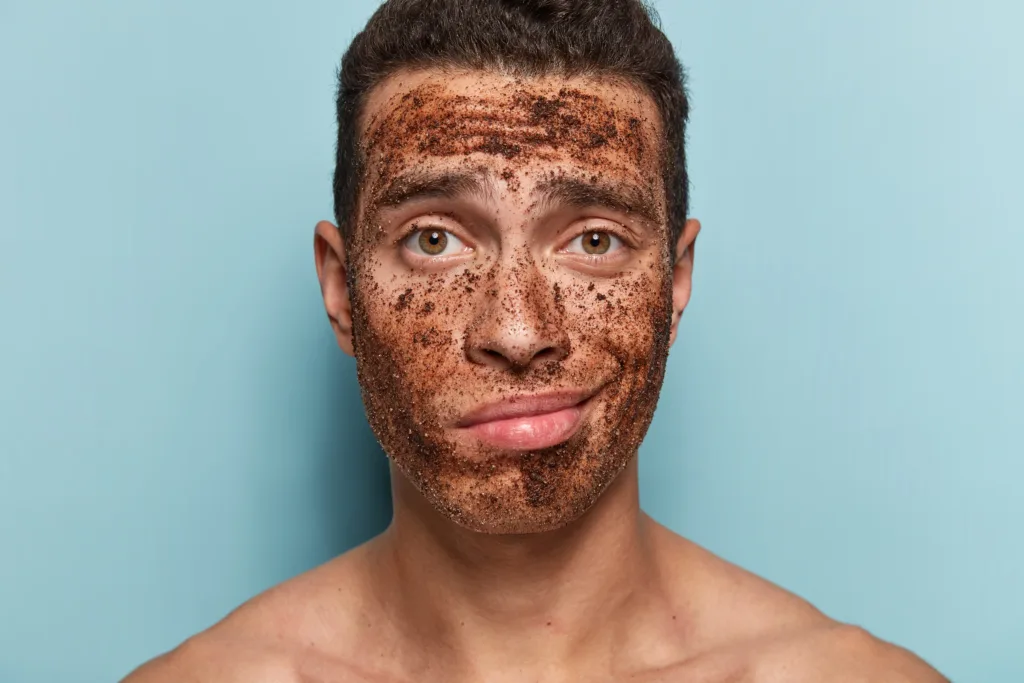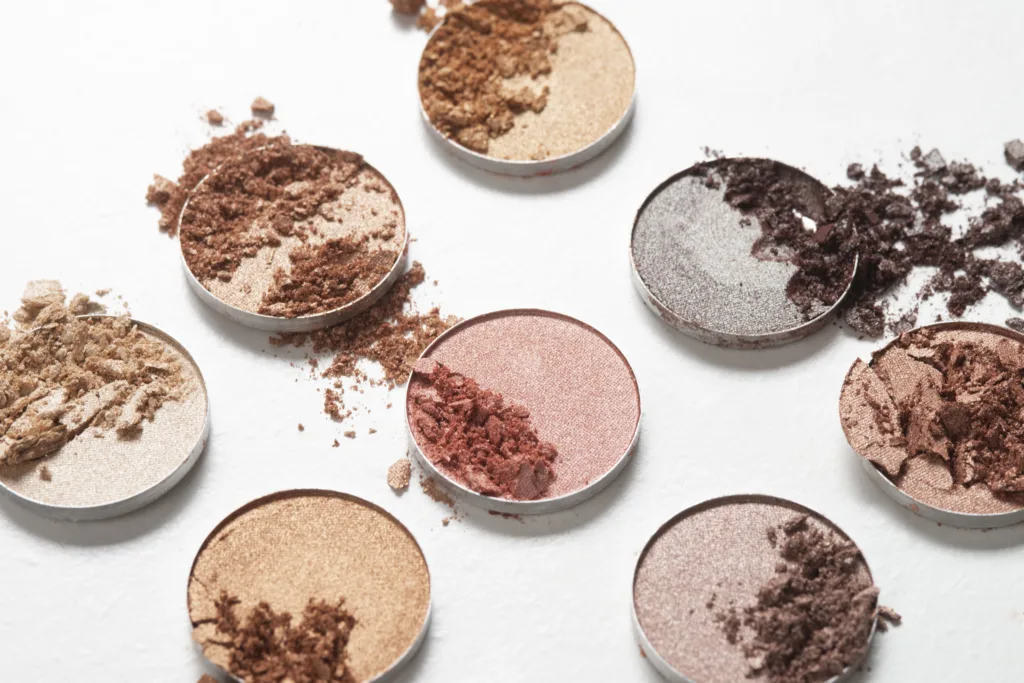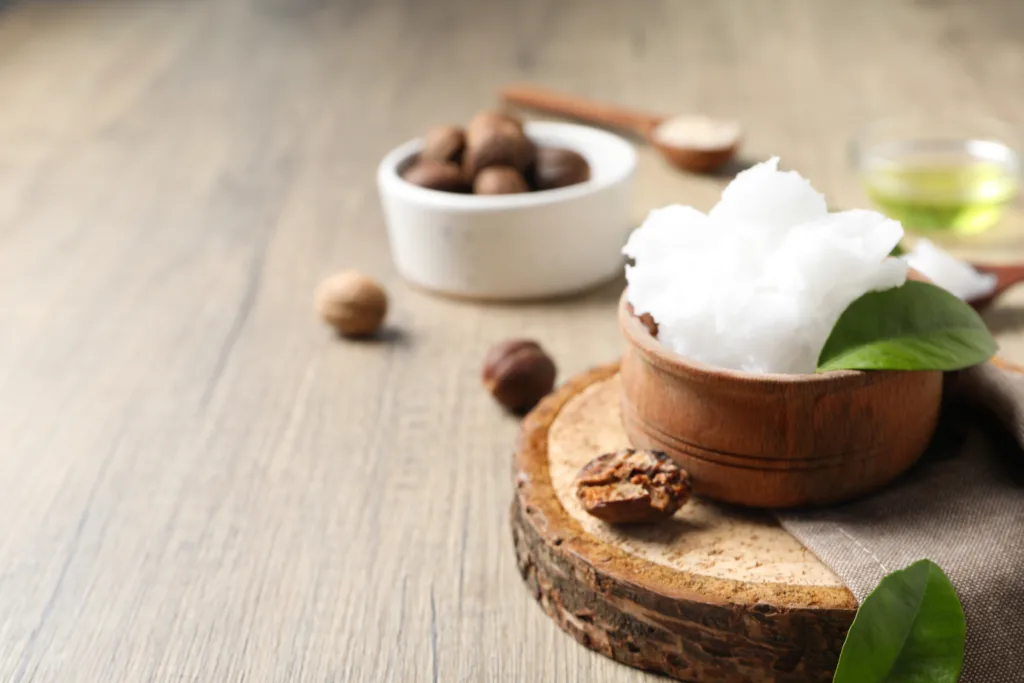When it comes to caring for sensitive skin, being mindful of the ingredients in your skincare routine is crucial. To ensure the health and comfort of your sensitive skin, it’s essential to steer clear of certain elements that may trigger irritation or adverse reactions. Here’s a guide to help you navigate the world of skincare, highlighting key things to avoid and pick the best ingredients for sensitive skin.
Table of Contents
Understanding Sensitive Skin
What Exactly is Sensitive Skin?
Alright, let’s kick things off by unravelling the mystery behind sensitive skin. It’s not just a catchphrase; it’s a real concern for many. We’ll break down the characteristics that define sensitive skin, giving you the insider’s scoop on what sets it apart from other skin types. Understanding the code is the first step in creating a skincare routine that works for, not against, your skin’s sensitivity.
Why Identifying Sensitive Skin Ingredients to avoid is Crucial
Let’s imagine you’ve found a new skincare product, and you’re excited to give it a try. But hold on – for those with sensitive skin, this enthusiasm can quickly turn into a skincare nightmare. There are specific triggers lurking in many skincare and beauty products. We’re going to reveal the culprits, those sneaky sensitive skin ingredients that can turn your routine into a redness-inducing disaster! And get you hands on the best ingredients for sensitive skin that can lead you way to skin-soothing success. Get ready to play detective as we uncover the villains to watch out for.
Are you curious about the secrets your skin holds and how to shield it from trouble? Let’s unravel the triggers together.
The Crucial Step: Patch Testing

Patch Test Protocol: A Must-do for Sensitive Skin Types
Alright, here’s a golden rule in the world of sensitive skin care – patch testing is your secret weapon. Think of it as a sneak peek before the main event.
- Choose a Small Area: Pick a spot behind your ear or inside your wrist – a small, inconspicuous area.
- Apply a Tiny Amount: Use a minimal quantity of the product you want to test. Less is more in this case.
- Wait Patiently: Give it 24 to 48 hours. Allow your skin time to react. Patience is your ally.
- Watch for Reactions: Keep an eye out for any signs of trouble – redness, itching, or irritation.
- Interpret the Results: If your skin reacts negatively, you’ve just dodged a potential skincare disaster.
DIY Patch Testing: A Simple Guide for Safeguarding Your Skin
Ready to take matters into your own hands? We’ve got your back. DIY patch testing is not rocket science, but it’s a crucial step in finding out what works for your sensitive skin and what doesn’t.
- Cleanse the Area: Use a mild, gentle cleanser to prepare the chosen patch test area.
- Apply the Product: Put a small amount of the product on the area and resist the urge to go overboard.
- Wait and Watch: Exercise patience and observe for the next 24 to 48 hours.
- Monitor for Reactions: Keep an eye out for any signs of irritation, redness, or itching.
- Evaluate and Proceed: If your skin stays calm, proceed with confidence. If not, it’s back to the drawing board for a better-suited product.
Fragrance Faux Pas

Risky Sensitive Skin Ingredients: Fragrance Pitfalls
Alright, let’s talk about one of the major troublemakers that’s not, let’s say the best ingredient for sensitive skin – synthetic fragrances. These seemingly delightful scents can be a real headache for your skin.
- Parabens: Commonly used as preservatives, parabens can be irritating for sensitive skin.
- Phthalates: These are often found in synthetic fragrances and can disrupt the skin barrier.
- Benzyl Alcohol: A fragrance ingredient that may cause skin irritation.
- Musk Ambrette: Known for its musky scent, it can be harsh on sensitive skin.
- Ethanol: Found in some fragrances, it can be drying and irritating.
Aromatic Pitfalls: the Dangers of Essential Oils
Now, onto another not-so-best ingredient for sensitive skin – essential oils. While they may sound like a natural remedy, they can be a double-edged sword for sensitive skin.
- Citrus Oils (e.g., Lemon, Lime): These can be photosensitizing and may cause skin irritation.
- Peppermint Oil: Known for its cooling effect, but it can be too intense for sensitive skin.
- Lavender Oil: While generally considered safe, it may cause irritation for some individuals.
- Tea Tree Oil: Known for its antimicrobial properties, but it can be harsh on sensitive skin.
- Eucalyptus Oil: Its strong aroma may trigger reactions in sensitive individuals.
Preservative Pitfalls

Steering Clear of Harmful Additives
Now, let’s journey into the realm of preservatives – the unsung heroes or potential villains in our skincare products. For sensitive skin, the wrong preservatives can be a cause for concern.
- Parabens: These preservatives, while effective, can be challenging sensitive skin.
- Formaldehyde and Formaldehyde Releasers: Found in some skincare products, they can trigger skin irritation.
- Phenoxyethanol: Despite its widespread use, it may cause reactions in sensitive individuals.
- Chlorphenesin: Used in some cosmetics, it can be irritating for sensitive skin.
- Quaternium-15: A preservative known to release formaldehyde, posing a risk for sensitive individuals.
Preservatives play a crucial role in preventing microbial growth in our skincare products, but certain types can be less than friendly to sensitive skin.
Scrubbing Cautiously

Exposing Risks: Navigating Exfoliating Abrasives
Time for a little skincare adventure – we’re diving into exfoliating territory. For sensitive skin, not all exfoliants are created equal, and some can be downright abrasive.
- Apricot Kernels: Despite their popularity, these can create microtears in sensitive skin.
- Crushed Walnut Shells: A natural exfoliant that can be too harsh for delicate skin.
- Pumice: Commonly found in foot scrubs, it’s abrasive and not suitable for sensitive areas.
- Bamboo Particles: While natural, they can be too abrasive and cause irritation.
- Jojoba Beads: Even though they’re gentle, some sensitive skin types may still find them too harsh.
Acid Awareness: The Impact of Exfoliating Acids
Now, let’s talk acids – the skincare superheroes that need careful handling. For sensitive skin, diving into the acid pool requires some extra caution.
- Glycolic Acid: A common exfoliating acid that may be too strong for sensitive skin.
- Salicylic Acid: While great for acne, it can be too harsh for some sensitive individuals.
- Lactic Acid: Gentler than glycolic acid but still warrants careful consideration for sensitive skin.
- Mandelic Acid: A milder option, but patch testing is crucial for those with sensitivity.
- Citric Acid: Found in citrus fruits, it can be irritating for some sensitive skin types.
We’ll expose the risks associated with these exfoliating ingredients and guide you on how to navigate and pick the best ingredients for sensitive skin when it comes to scrubs and acids. Ready for a smoother, happier complexion? Let’s scrub cautiously!
Blemish Battle

Sensitive Skin Approach to Acne Treatments
Ah, the blemish battle – a common struggle for many, but for those with sensitive skin, the fight needs a strategic approach so you oily skin beauties always choose the best ingredients for your sensitive skin. Let’s delve into the world of acne treatments and how to navigate it with sensitivity in mind.
- Salicylic Acid: The go-to for many battling acne, but it can be too harsh for sensitive skin.
- Benzoyl Peroxide: A powerful acne fighter that may cause dryness and irritation for sensitive individuals.
- Retinoids: While effective, they require careful consideration for sensitive skin.
- Sulfur: Found in some acne treatments, it can be drying and potentially irritating.
- Niacinamide: Generally well-tolerated, but some sensitive individuals may still experience reactions.
Acne-prone skin and sensitivity need not be a catch-22. Let’s explore a nuanced approach to acne treatments, ensuring you can fight the blemish battle without compromising your skin’s delicate balance with those annoying sensitive skin ingredients.
Wool Woes

The Allergenic Tale of Lanolin
Let’s talk about wool woes – specifically, the ingredient that falls a bit short in the realm of best ingredients for sensitive skin and might unknowingly causing discomfort. Enter lanolin, a common allergen with a not-so-friendly reputation.
- Lanolin Allergy: Some individuals with sensitive skin may develop an allergic reaction to lanolin.
- Skin Sensitization: Prolonged use of lanolin-containing products may lead to sensitization, causing irritation over time.
Alternatives and Considerations for Sensitive Skin
So, what’s the game plan for those experiencing wool woes? Fear not, we’re exploring alternatives and considerations to keep your skin happy.
- Shea Butter: A moisturizing alternative without the allergenic concerns of lanolin.
- Cocoa Butter: Known for its emollient properties, it can be a soothing substitute for lanolin.
- Hypoallergenic Formulas: Opt for products explicitly labeled as hypoallergenic to minimize the risk of sensitivity.
Whether you’ve experienced lanolin-induced discomfort or want to proactively avoid potential wool woes, we’ve got the insights you need. Let’s dive into the world of the best ingredients for sensitive skin and bid farewell to lanolin-related worries!
Suds & Sensitivity

The Reality of Soaps: Navigating Cleansing Challenges
Ah, the age-old battle against dirt and grime – the reason we turn to soaps. But for sensitive skin, not all soaps are created equal, and navigating the cleansing challenge requires a careful approach.
- Fragranced Soaps: A potential source of irritation, fragrances in soaps may trigger sensitivity.
- Harsh Detergents: Some soaps contain strong detergents that can strip the skin’s natural oils, leading to dryness.
Choosing Skin-Friendly Cleansing Options
Now, let’s talk solutions. We’re exploring alternatives and considerations to ensure your cleansing routine doesn’t turn into a sensitivity saga.
- Fragrance-Free Formulas: Opt for soaps labeled as fragrance-free to minimize the risk of irritation.
- Gentle Cleansers: Look for cleansers with mild ingredients that cleanse without causing dryness.
- Liquid Cleansers: Consider liquid cleansers, often more gentle than traditional bar soaps.
Whether you’ve faced challenges with traditional soaps or want to proactively choose skin-friendly options, we’re here to guide you through the sudsy realm. Ready to make your cleansing routine a source of comfort, not irritation? Let’s suds and soothe!
Retinoids Reconsidered

Finding Balance: Sensitive Skin and Retinoid Use
Let’s talk retinoids – hailed as skincare superheroes for some but potential troublemakers for those with sensitive skin. Finding the right balance is key to making peace with retinoids.
- Retinol Sensitivity: Sensitive skin may react to retinol, causing dryness, redness, and peeling.
- Retinoid Strength: Higher concentrations of retinoids can be harsh on sensitive skin, leading to irritation.
Tips for Incorporating Retinoids Safely
But fear not, we’ve got the lowdown on how to make retinoids work for you without the drama. Here are some tips for incorporating retinoids safely into your routine.
- Start Low, Go Slow: Begin with a lower concentration and gradually increase to allow your skin to adapt.
- Buffer with Moisturizer: Apply retinoids over moisturizer to minimize direct contact and reduce potential irritation.
- Use Sparingly: A little goes a long way – using too much can overwhelm sensitive skin.
Whether you’re a retinoid enthusiast or cautiously considering adding them to your routine, we’re here to guide you through the nuances. Let’s make retinoids a friend, not a foe, for your sensitive skin!
Alcohol Alert

Dangers of Denatured Alcohol in Skincare
Time to address the buzzworthy ingredient in skincare – alcohol. While it’s often present in various products, denatured alcohol can be a real red flag for sensitive skin.
- Drying Effect: Denatured alcohol can strip the skin of its natural oils, leading to dryness.
- Skin Irritation: For sensitive individuals, alcohol can be an irritant, causing redness and discomfort.
Identifying Alcohol-Free Alternatives
Now, let’s steer away from the dangers and explore alternatives. We’re on a mission to help you find skincare products that won’t leave your sensitive skin feeling the burn.
- Glycerin-Based Formulas: Look for products with glycerin, a hydrating alternative to denatured alcohol.
- Aloe Vera-Infused Products: Aloe vera provides soothing properties without the drying effects of alcohol.
- Hyaluronic Acid: Opt for products containing hyaluronic acid for hydration without the irritation.
Whether you’ve experienced the sting of alcohol in your skincare or want to be proactive in avoiding it, we’ve got your back. Let’s raise an alcohol-free toast to a happier, irritation-free complexion!
Sudsing Safely

The Dangers of Sulfates
Ah, the foamy lather – a satisfying part of the cleansing ritual. But for sensitive skin, some common suds-inducing culprits called sulfates can turn this routine into a skin-soothing challenge.
- Drying Effect: Sulfates, like sodium lauryl sulfate, can strip the skin of its natural oils, causing dryness.
- Skin Irritation: Sensitive individuals may experience redness, itching, or irritation from sulfates.
Sensitive Skin Guide to Sulfate-Free Products
Now, let’s discuss gentler sudsing. We’re diving into the world of sulfate-free options, ensuring your cleansing routine doesn’t become a source of sensitivity.
- Cocamidopropyl Betaine: A mild, sulfate-free cleanser that maintains effective cleansing without the harshness.
- Natural Oil-Based Cleansers: Products with oils like jojoba or olive oil can cleanse without over-drying.
- Plant-Based Cleansers: Look for cleansers with plant-derived ingredients for a soothing, sulfate-free experience.
Whether you’ve experienced the aftermath of sulfates on your skin or you’re proactively seeking a gentler cleansing alternative, we’re here to guide you toward sudsing safely. Let’s make your cleansing routine a source of comfort, not concern, for your sensitive skin!
Sunscreen Safeguards

Navigating Chemical Sunscreen Ingredients
Now, let’s dive into the world of sunscreens – your shield against those powerful UV rays. But for sensitive skin, navigating the realm of chemical sunscreen and sorting out the best ingredients for sensitive skin requires a careful approach.
- Oxybenzone: A common chemical sunscreen ingredient that can cause skin irritation for some individuals.
- Octinoxate: Another potential irritant found in chemical sunscreens, especially for those with sensitivity.
- Avobenzone: While effective, it may cause stinging or redness in sensitive skin.
Choosing Sunscreen for Sensitive Skin
Fear not, sun protection doesn’t have to be a source of stress for your sensitive skin. We’re here to guide you through the sunscreen aisle, helping you find the right protection without the irritation.
- Physical Sunscreens: Look for zinc oxide or titanium dioxide-based sunscreens for a gentle, physical barrier.
- Fragrance-Free Options: Opt for sunscreens labeled as fragrance-free to minimize the risk of sensitivity.
- Broad-Spectrum Protection: Ensure your sunscreen offers broad-spectrum protection to shield against UVA and UVB rays.
Whether you’ve experienced sunscreen-induced irritation or you’re on a quest for the perfect sun protection, make sure your sunscreen safeguards your sensitive skin without compromise.
Hue Hazards

The Downside of Dyes and Colorants
Ah, the vibrant world of cosmetic hues – a tempting palette that can sometimes spell trouble for sensitive skin. Let’s unravel the potential hazards lurking in dyes and colorants.
- Skin Irritation: Some synthetic dyes can lead to redness, itching, or irritation for sensitive individuals.
- Allergic Reactions: Sensitivity to certain colorants may manifest as allergic reactions, making choosing the right products crucial.
Opting for Dye-Free and Colorant-Free Products
- Mineral Makeup: Consider mineral-based makeup for vibrant hues without synthetic dyes.
- Natural Pigments: Look for products using natural pigments like beetroot or turmeric for a colorful yet gentle touch.
- Dye-Free Formulas: Opt for products explicitly labeled as dye-free or colorant-free to minimize the risk of irritation.
Whether you’ve experienced the downside of dyes or you’re proactively choosing beauty products with your sensitive skin in mind, check out our guide on keeping your skin radiant without the hue hazards!
PEG Perils

Let’s dive into the realm of PEGs (polyethylene glycols) – commonly found in skincare and beauty products but potentially causing perils for sensitive skin.
- Skin Penetration: PEGs may enhance the absorption of other ingredients, potentially leading to sensitivity.
- Skin Irritation: Some individuals with sensitive skin may experience irritation or redness from products containing PEGs.
- Contamination Concerns: There’s a risk of PEGs being contaminated with harmful substances during the manufacturing process.
Choosing PEG-Free Alternatives
Now that we’ve unveiled the potential perils, let’s explore alternatives. We’re on a mission to help you make skincare choices that pamper, not provoke, your sensitive skin.
- Natural Oils: Consider products with natural oils like coconut, jojoba, or argan oil for hydration without PEGs.
- Shea Butter Formulas: Shea butter is a luxurious alternative that can provide moisture without the use of PEGs.
- Plant-Derived Ingredients: Look for items with plant-derived sensitive skin ingredients, offering a gentle touch without the concerns associated with PEGs.
Whether you’ve experienced PEG-related sensitivities or you’re proactively seeking PEG-free alternatives, we’re here to guide you toward skincare that prioritizes your sensitive skin’s well-being. Let’s navigate the world of skincare without the PEG perils!
Petroleum Predicament

Unmasking Potential Issues with Petroleum
Now, let’s talk about an ingredient that often finds its way into skincare products – petroleum. While it’s a staple for some, for sensitive skin, it can pose potential predicaments.
- Clogged Pores: Petroleum-based products may be too heavy for some, potentially leading to clogged pores.
- Skin Occlusion: In some cases, petroleum can create a barrier on the skin, hindering its natural breathing process.
- Risk of Contamination: The production process of petroleum-based products may involve contaminants, that might not be the best match for best ingredients for sensitive skin.
Opting for Petroleum-Free Hydration
So, how do we navigate the sea of moisturizers without falling into the petroleum predicament? Fear not, we’re here to guide you toward alternatives that provide the hydration your sensitive skin craves.
- Hyaluronic Acid Formulas: Choose products featuring hyaluronic acid for lightweight yet effective hydration.
- Glycerin-Rich Moisturizers: Glycerin is a fantastic alternative, offering moisturization without the heaviness of petroleum.
- Jojoba Oil Infusions: Jojoba oil mimics the skin’s natural oils, making it a gentle and balancing choice.
Whether you’ve experienced issues with petroleum-based products or you’re proactively seeking alternatives, we’re here to ensure your moisturizing routine becomes a source of comfort for your sensitive skin. Let’s hydrate without the petroleum predicament!
Fragile Fibers

The Sensitivity of Synthetic Fabrics
Let’s shift our focus to what often touches our skin daily – clothing. Synthetic fabrics may offer convenience, but for sensitive skin, they can be a source of discomfort.
- Irritation Potential: Fabrics like polyester and nylon may cause irritation or itching for sensitive individuals.
- Poor Breathability: Some synthetic fabrics lack breathability, potentially leading to trapped moisture and skin discomfort.
- Allergic Reactions: Sensitive skin may react to the dyes and chemicals used in the production of synthetic fabrics.
Switch to Sensitive Skin-Friendly Fabrics
Now, let’s talk about wardrobe choices that pamper rather than provoke your sensitive skin. We’re exploring fabrics that prioritize comfort and breathability.
- Cotton Bliss: Opt for cotton fabrics for their softness, breathability, and overall skin-friendly nature.
- Bamboo Beauty: Bamboo fabrics offer a luxurious feel and are known for their hypoallergenic properties.
- Linen Loveliness: Light and breathable, linen is a fantastic choice for those with sensitive skin.
Whether you’ve experienced wardrobe-induced discomfort or you’re proactively seeking fabrics that cater to your sensitive skin, we’re here to guide you toward a wardrobe that’s both stylish and soothing. Let’s embrace the delicate balance of fashion and sensitivity!
Recap: Best Ingredients for Sensitive Skin
Sensitive skin demands a delicate dance through the beauty and care aisles, and as we conclude our exploration of how to choose the best ingredients for sensitive skin and essentially what to avoid, let’s reflect on the key takeaways.
- Vigilance Is Vital: Understanding your skin’s needs and sensitivities is the first step toward a healthier skincare routine. Be vigilant about the sensitive skin ingredients in your products.
- Patch Test Power: The patch test isn’t just a suggestion; it’s your secret weapon. Embrace the power of patch testing to avoid potential skin disasters.
- Educate Yourself: Arm yourself with knowledge. Knowing which sensitive skin ingredients to avoid empowers you to make informed choices for your skincare and overall well-being.
- Natural Isn’t Always Gentle: While natural ingredients can be wonderful, they aren’t universally gentle. Some, like essential oils, can still pose risks for sensitive skin.
- Fragrance Foes: Synthetic fragrances and essential oils can be fragrance foes for sensitive skin individuals. Opt for fragrance-free options to play it safe.
As you embark on your sensitive skin journey, remember that it’s not just about avoiding pitfalls; it’s about embracing a skincare routine that celebrates and nurtures your unique skin type. Here’s to a future of healthy, happy, and irritation-free skin!



Leave a Reply